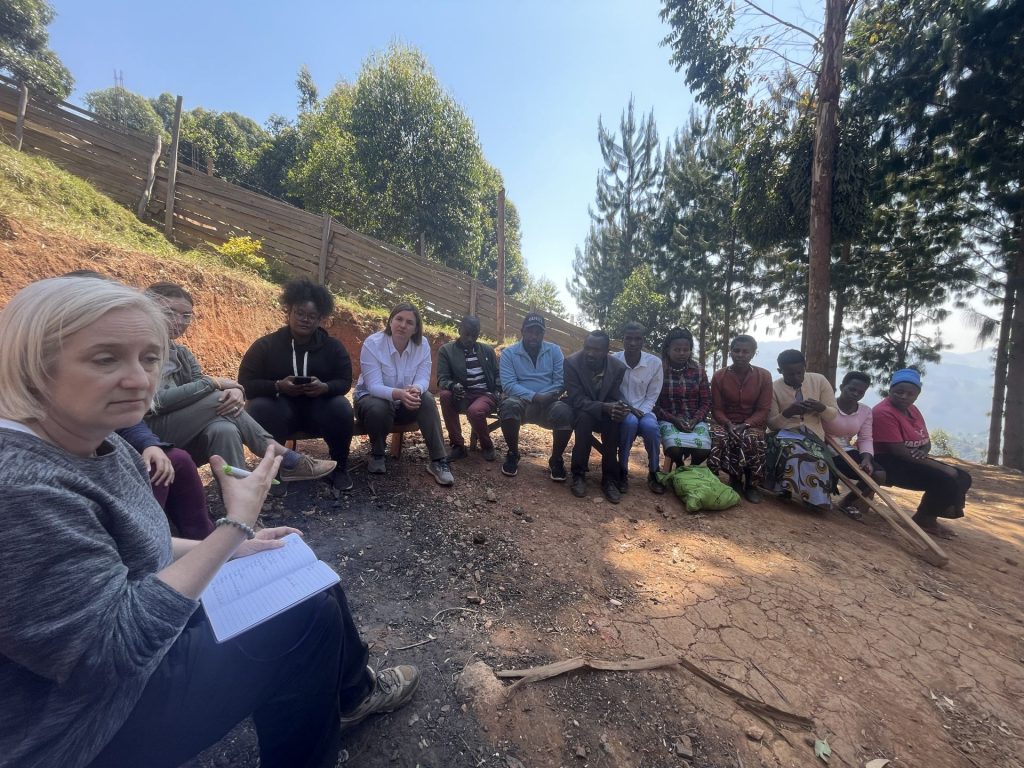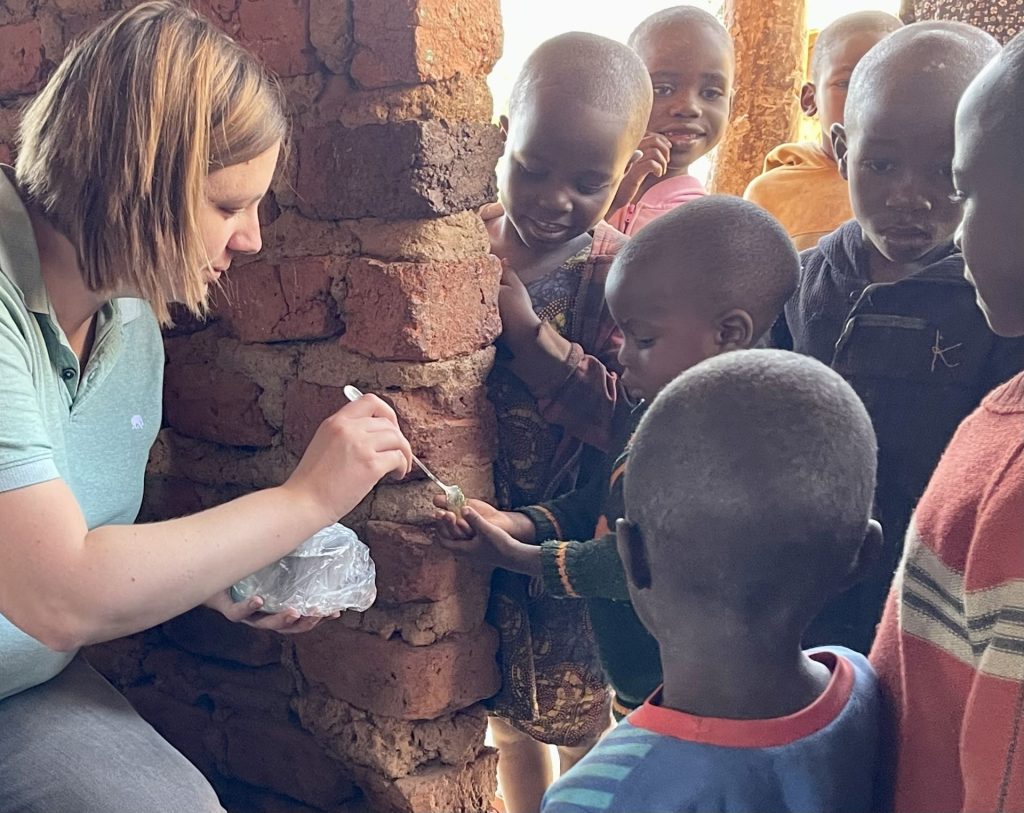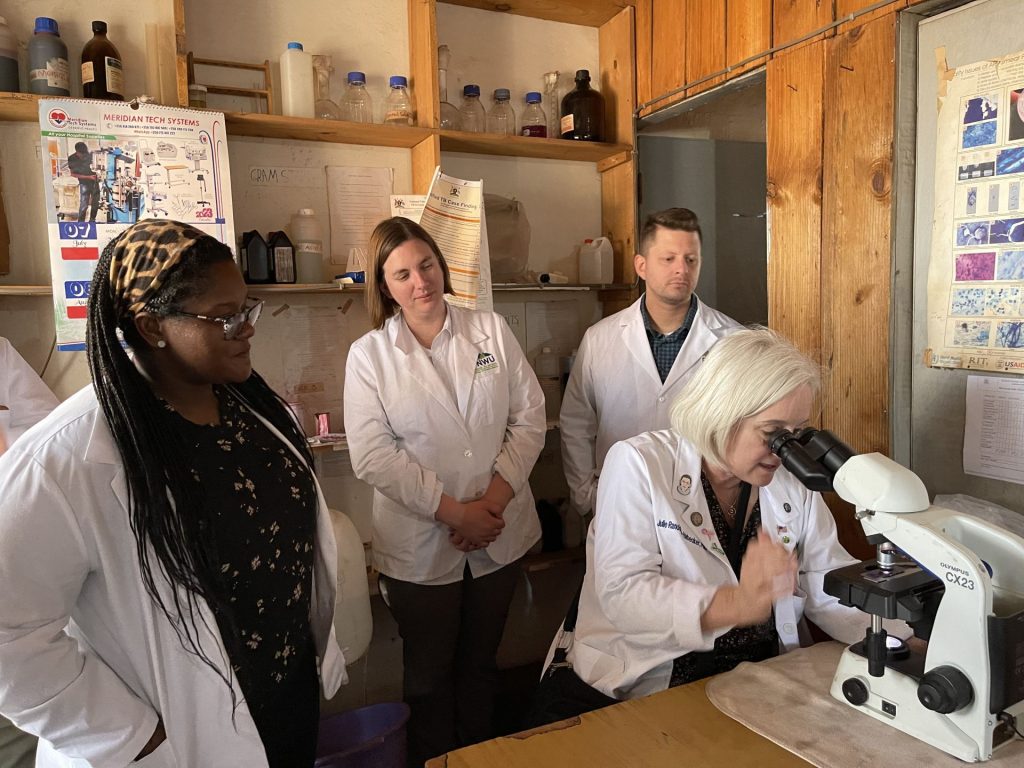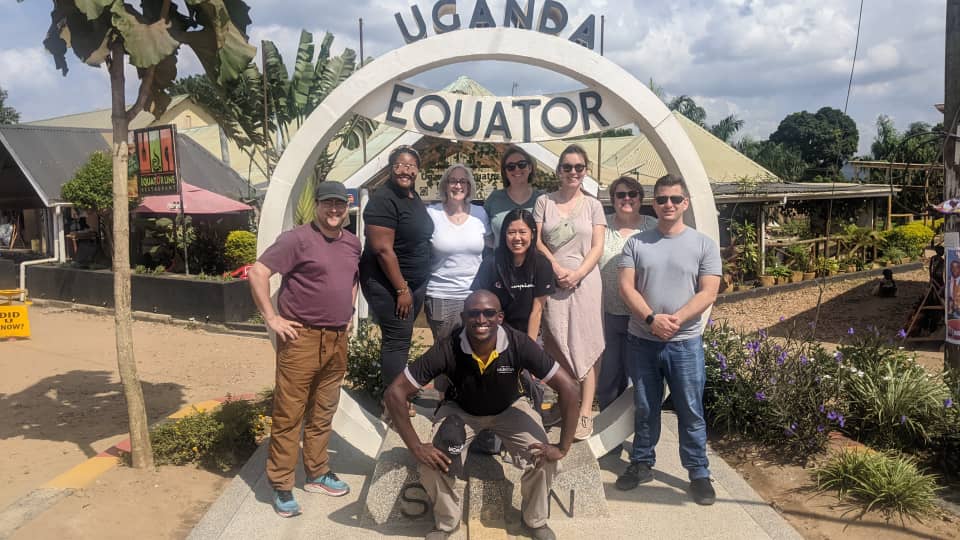This summer, a group of professors and students from PNWU ventured to Uganda for an enriching two-week experience in health sciences education.
Led by Dr. Julie Randolph Habecker, PNWU’s Division Chief of Pathology, and Dr. Jeanne Rupert, Assistant Dean for Clinical Education, six first-year PNWU-COM students embarked on a trip to Kampala, Uganda as part of an elective global health course. The course, which was developed by Dr. Habecker, Dr. Rupert, and Dr. Crystal Martin, Assistant Professor of Osteopathic Principles and Practice, provides an opportunity for students and faculty to explore global health challenges, with a special focus on understanding the unique considerations of rural global communities and how they compare to underserved communities in the United States.
Dr. Habecker explained, “Uganda serves as a fascinating classroom for PNWU students,” noting the country’s stable democracy, geographic stability, and positive diplomatic relationship with the US. Traveling in Uganda is safe, and English is one of the official languages, in addition to Swahili.

During their time in Kampala, students shadowed Ugandan Internal Medicine physicians in the pulmonary ward, visited the pediatric oncology floor of the Ugandan Cancer Institute (UCI), observed pathology services at both UCI and Mulago, learned about research initiatives at the Fred Hutchinson/UCI cancer clinic, and attended several autopsies. The group then journeyed to the southwestern region of Uganda, where they spent four days at the Kigezi Healthcare Foundation (KIHEFO) in the rural town of Kabale.
KIHEFO operates as a local not-for-profit, non-governmental organization (NGO) committed to providing health care through a comprehensive, community-centered approach with a strong emphasis on development and education. During their time in Kabale, the cohort participated in lectures by KIHEFO founder Dr. Geoffrey Anguyo, MD, covering topics such as HIV/AIDS, maternal health, and the intersection of medicine and traditional healing. They visited the main clinic, examined blood smears from individuals with malaria, and assembled delivery kits for pregnant women. Additionally, they were involved in a mobile clinic for the Batwa people, a marginalized indigenous community displaced from their native forest lands in the 1990s. The group also had the opportunity to distribute donated classroom supplies to the children of this community.


On the tenth day of the trip, the students and faculty journeyed by boat up Lake Bunyonyi to meet with a traditional healer and the community midwives. From there, the cohort ventured into the Bwindi Impenetrable Forest, home to the mountain gorillas, to visit the Ruhija Community Orphanage, Disabled Homecare, and Early Learning Center. The orphanage provides support for approximately 120 children, with an additional 100 orphans receiving meals and education while living with community members.
The group toured the facility and learned about the nutritional, healthcare, and sanitation challenges faced by the children. Dr. Rupert and PNWU Student Doctor Ben Wohlers conducted a training session for orphanage staff and older students, covering wound care, respiratory and gastrointestinal illness management, dermatological issues such as scabies, and the use of over-the-counter medications. They collaborated with a local nurse to identify common illnesses in the children and discuss potential approaches to care.
Research has shown that trainees who participate in global health experiences are more likely to practice in underserved areas, often in primary care roles. Students who engage in global health electives also report improved cultural awareness, language proficiency, public health and research skills, and greater adaptability to technology-limited settings.
In addition to the Global Health Electives course, Dr. Habecker and Student Doctor Beneshia Robinson also utilized the trip to instruct Ugandan technicians in crucial laboratory diagnostic procedures. Hosted by Dr. Robert Lukande, MD, Senior Pathologist and Laboratory Director at Makerere University in Kampala, they demonstrated techniques that are routinely performed in well-resourced countries like the US but are often unavailable in low-resource settings.
As the rates of cancer and other non-infectious diseases are on the rise, and more treatments become available for Ugandan patients, Dr. Habecker recognized the need for education on these techniques. To address this need, she developed a two-week introductory course in immunohistochemistry (IHC), which Student Doctor Robinson learned prior to her departure for Uganda and assisted Dr. Habecker in teaching.
Participants quickly grasped the basic IHC techniques and even attempted more advanced methods, including multi-probe tissue staining. By the end of the course, the students were equipped with the confidence to apply this skill in the various laboratories where they work. Ugandan healthcare providers expressed a keen interest in learning more about osteopathic medicine, frequently highlighting the benefits of the holistic osteopathic approach in patient care, particularly for Ugandan patients in rural and underserved areas. Our Ugandan partners are eager to host students and faculty from PNWU’s Physical Therapy, Occupational Therapy, and Dentistry programs.

“I embarked on this journey with the intention of immersing myself in Ugandan culture,” said Student Doctor Jillian Zalunardo, PNWU-COM Class of 2026. “I could never have anticipated the knowledge I would gain from this trip. The determination with which the Ugandans strive for improvement inspires me to take that same optimism and effect change upon my return to my home community.”

